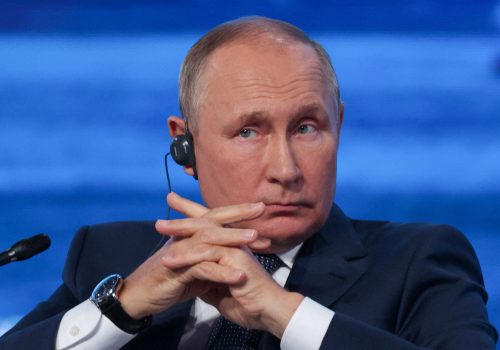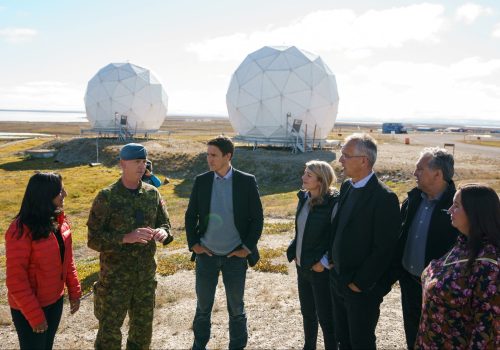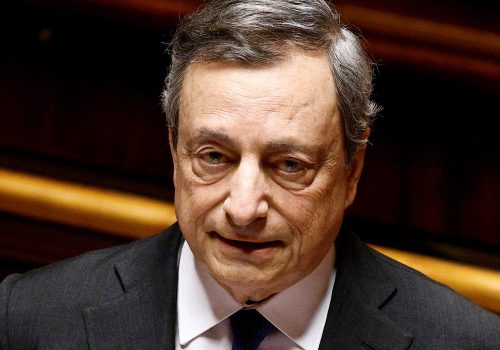What’s next for European energy security? Our experts decipher the State of the European Union Address.
Winter is coming. As the European Union (EU) confronts Russia’s war in Ukraine and spiraling energy prices, European Commission President Ursula von der Leyen delivered her State of the European Union Address on Wednesday in Strasbourg, France, with a focus on how the bloc needs to respond to the crisis. Below our experts from the Atlantic Council’s Europe Center and Global Energy Center break down the highlights of the speech and leave their notes in the margins of the text.
Introducing our annotators for this edition of Markup
- Olga Khakova: Deputy director for European energy security at the Global Energy Center
- Jörn Fleck: Acting director of the Europe Center
- Tyson Barker: Nonresident senior fellow at the Europe Center
- James Batchik: Assistant director at the Europe Center
- Joseph Webster: Senior fellow at the Global Energy Center
Their key takeaways from the speech:
- Energy security took top billing. Von der Leyen made news with an announcement on price caps and new rules on the electricity market. The European Green Deal, the search for reliable energy partners, and the climate transition were major focuses in the speech.
- EU sanctions aren’t going anywhere. Von der Leyen made clear that sanctions against Russia are here to stay, a message to European member states and the rest of the world as much as to Vladimir Putin.
- Europe’s strategic decoupling is accelerating. The days of an assertive EU markets-first, free-trade approach are coming to an end. Von der Leyen doubled down on reducing Europe’s strategic economic dependencies on both Russia and China. Her announcement of the European Critical Raw Materials Act builds on previous efforts to become more self-reliant in microchips and batteries.
- Will the EU grow? Von der Leyen endorsed the European Political Community, a nascent if vague proposal from French President Emmanuel Macron to rewrite Europe’s engagement with its neighbors. Ukraine will get access to the internal market, von der Leyen said, but she only mentioned in passing EU enlargement for the Balkans, Moldova, and Georgia.
- What was missing: a discussion of defense. With a recognition that war has again come to Europe, von der Leyen spent very little time on the future of Europe’s security and defense. Neither the EU’s Strategic Compass nor common security and defense policies made the cut for this year’s State of the European Union.
Here is the speech, displayed with annotations from our experts.
Further reading
Sun, Sep 11, 2022
Russia is facing defeat in Putin’s gas war against the European Union
UkraineAlert By
Vladimir Putin has declared an energy war against the European Union but there are growing signs that the Russian dictator may have overplayed his hand, writes Aura Sabadus.
Wed, Aug 31, 2022
The war in Ukraine is an opportunity to upgrade the transatlantic architecture. Here’s how.
New Atlanticist By
Atlantic leaders should treat the current conflict—just as they did the Cold War—as an opportunity to improve institutional capabilities.
Thu, Jul 21, 2022
Mario Draghi, and Italy’s political stability, are gone. What’s next for Europe?
New Atlanticist By
Draghi's resignation sent shockwaves through a European political establishment whose very stability he helped ensure.
Image: European Commission President Ursula von der Leyen delivers state of the European Union address to the European Parliament, in Strasbourg, France, on September 14, 2022. Photo via REUTERS/Yves Herman.


